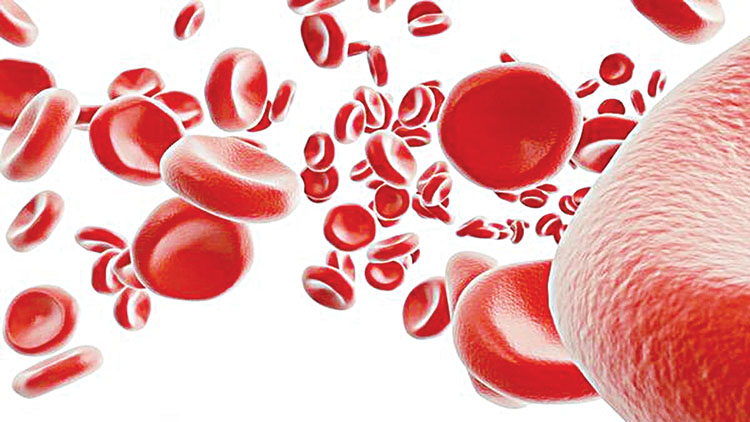New Delhi, May 5 (Bureau) Thalassemia is a genetic condition affecting millions worldwide and every year over 10,000 new cases of thalassemia are diagnosed in India, making the country the Thalassemia capital of the world. Despite its prevalence, there is a lack of awareness about this condition and its treatment options. This hereditary disease affects many children in their infancy, and parents who are usually asymptomatic are carriers of this disease and have a 25 per cent chance of passing it to their children. Dr. Joseph John, Professor & Head of the Department of Clinical Hematology, Haemato-Oncology & Stem Cell Transplantation, Christian Medical College, Ludhiana, says, “One of the most significant challenges facing thalassemia patients is the availability of safe and timely blood transfusions. Patients with thalassemia require frequent blood transfusions, and it has been estimated that the annual requirement of packed red cells is about 2 million units in India alone.
While patient organizations and regional blood banks have made significant efforts to fulfill this requirement, the demand for safe blood far outstrips the supply. This leaves many families struggling month after month to obtain the necessary blood for their children.” Dr. Sunil Bhatt, Director and Clinical Lead, Pediatric Hematology, Oncology and Blood & Marrow Transplantation, Narayana Health, Bengaluru, says, Although the overwhelming burden of thalassemia has become a huge concern for the Indian population, there is hope. Patients suffering from thalassemia can be cured with a stem cell transplant, ideally at an early age. The need for transplants in children is, therefore, extremely high. Thalassemia patients are mostly children who undergo painful blood transfusions for several years. Blood transfusions have its challenges and risks for the patients. A successful blood stem cell transplant depends on a perfect HLA tissue match.
Only 30% of patients who need transplants have a fully HLA-matched donor in their family; the rest depend on an unrelated donor. As per the theme for thalassemia day 2023: Be Aware. Share. Care. It is high time to raise awareness about the disease and the treatment options.” Individuals with thalassemia and their families face significant challenges accessing quality healthcare and treatment. Addressing these challenges requires a multifaceted approach that involves increasing awareness about thalassemia and its treatment options, improving the availability of safe blood and specialized care, and making curative treatments like stem cell transplantation more accessible to patients who need it. Patrick Paul, CEO, DKMS BMST Foundation India, informs, “We aim to support underprivileged blood cancer and other blood disorders, such as Thalassemia patients in India, for which we have initiated the DKMS-BMST Thalassemia programme. Under this programme, DKMS-BMST collaborates with local NGOs and transplant centers to organize camps where pediatric thalassemia patients and their siblings travel from afar places, sometimes from very remote places in India, to give buccal swab samples for HLA typing. Samples from the camps are analyzed in the DKMS laboratory based out of Germany, and clinical matching reports are provided. In cases where there is no matching sibling for a sick child, we also support unrelated donor searches for patients.”

